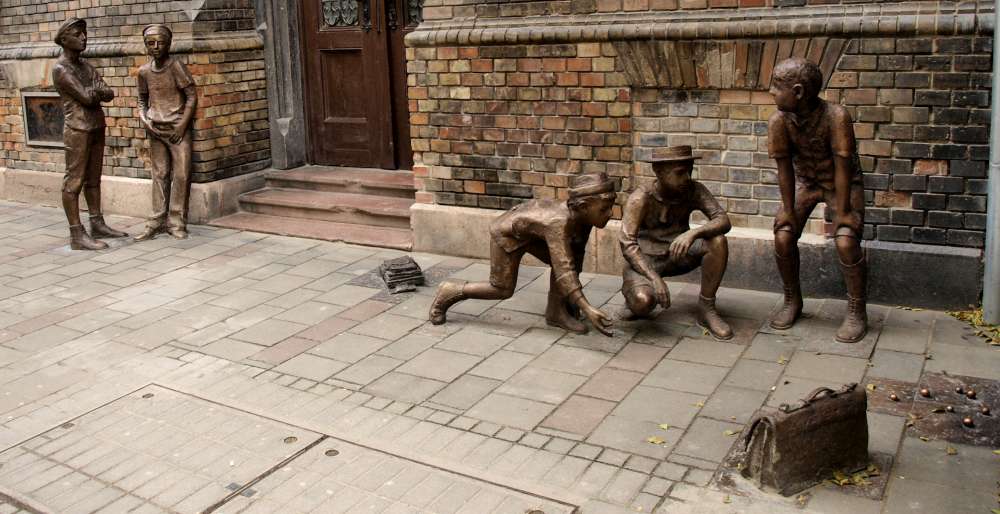I have been reading books in Hungarian over the past three years to keep my Magyar language skills up. Though I am fluent in the language, have lived in the country for nearly a decade, and easily pass as a native, I don’t use the language much because I essentially live in a bubble world here in Hungary.
Off the bat, I have to say that my experience with Hungarian literature thus far has been a little disappointing. Hungarians take pride in their literary culture and often name streets and squares after their authors and poets. However, the little Hungarian literature I have read has been rather dull and mediocre. Or overladen with politics or artifice. Even the supposed masterpieces I have read to date have been mostly meh. Great works of Hungarian literature undoubtedly exist – I guess I just haven’t been lucky enough to pick one up yet.
On that note, I am pleased to report that Ferenc Molnár’s classic youth novel The Paul Street Boys – which I finished yesterday – has bucked the disappointing Magyar literature trend. Though not a masterpiece, the novel is a solid example of excellence in its genre. First published in 1906, The Paul Street Boys remains a staple in grade school curriculums here in Hungary and ranks among the most-read Hungarian novels beyond Hungary’s borders.
I tend to write meandering and overlong book summaries, so I’ll let Wikipedia provide a brief overview of The Paul Street Boys:
The novel is about schoolboys in the Józsefváros neighborhood of Budapest and is set in 1889. The Paul Street Boys spend their free time at the grund, an empty lot that they regard as their “Fatherland.” The story has two main protagonists, János Boka (the honorable leader of the Paul Street Boys) and Ernő Nemecsek (the smallest member of the group).
When the “Redshirts” — another gang of boys, led by Feri Áts, who gather at the nearby botanical gardens—attempt to take over the grund, the Paul Street Boys are forced to defend themselves in military fashion.
Although the Paul Street Boys win the war, and little Nemecsek repeatedly demonstrates that his bravery and loyalty surpass his size, the book ends in tragedy: Nemecsek dies of the pneumonia he caught in the conflict.
At the very end of the book, Boka also learns that a tenement building will soon be erected on the grund lot, meaning that the boys' heroic struggle to defend it and Nemecsek's sacrifice was in vain.
The novel’s ending addresses the inherent insufficiency of mortal life in this-world of continual change and entropy -- which is quite a way to end a youth novel!
Eventually, the external world will abandon us. We will inevitably lose everything we work and struggle for. All that we defend will one day be taken from us. The people we love will all die just as we will die. Our little pieces of heaven on earth will disappear and become something else.
The final sentence of the novel captures this quite subtly yet brilliantly (my translation from the original):
Boka János komolyan nézett maga elé a padra, és most először kezdett derengeni egyszerű gyereklelkében a sejtés arról, hogy tulajdonképpen mi is az élet, amelynek mindnyájan küzdő, hol bánatos, hol vidám szolgái vagyunk.
János Boka looked earnestly at the bench in front of him, and for the first time, his simple child soul experienced a sense of what life is and what we, as its servants, struggle against, sometimes sadly, sometimes happily.
Ferenc Molnár ends The Paul Street Boys there. He makes no mention of the choices available to Boka after the boy experiences that sense of what life is, but I hope one of the choices would lead Boka to the eventual realization that he is not merely "life's servant" and that what life is is not all life is.
Yet, hoping Boka will find Christ is not enough.
Boka must find the internal Christ because if his faith finds Christ only in the external world, he will eventually lose Christ, too -- one day.


 RSS Feed
RSS Feed

